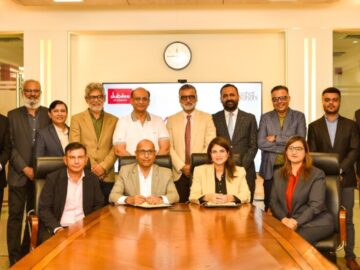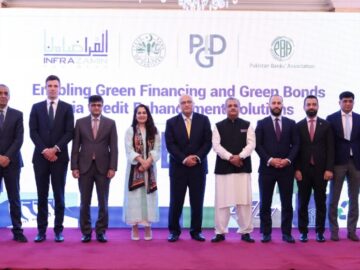
From ride-hailing services to grocery delivery, and financial services such as buy-now-pay-later to microfinancing, super-apps development in the Pakistan, Middle East, and Africa is emerging fast as the region proves to be a potentially fertile ground for its growth.
In a study commissioned by Mastercard and carried out by Economist Impact titled ‘From online bazaar to one-stop-shop: The rise of super-apps in the Middle East and Africa’, the paper examines how population growth, digital access, connectivity, a diverse demographic, increasing trust, and affordability is contributing to the rapid progress of super-apps in the region.
The study also draws parallels between the ecosystems that drove the rapid rise of super-apps such as WeChat, Meituan, or AliPay in China a decade ago to the Middle East and Africa region currently where the super-app model is showing early promise. Emerging players are seeking to emulate the Chinese-born concept and create regional success stories of their own.
While multi-function apps have been popular in Asia for some time, cut-through elsewhere in the world has been slower. Consumers in western and MEA including Pakistan markets have largely messaged, hailed taxis, summoned food, and paid for things with different apps. But more recently firms including Spotify, Uber, and Revolut have raced to bundle ever more features into their apps.
“With the Middle East and Africa region projected to become the most populous area in the world, with a forecast population of 3.4 billion by 2050, this expanded market presents a wealth of customer data, which regional players could leverage to add value for all stakeholders. Mastercard, with its digital-first approach, can be that single technology provider of choice to connect diverse players such as telcos, digital e-tailers, and fintech to become super-apps by providing technology solutions, platforms, and propositions that enable a superior digital experience and drive greater inclusion for people across MEA,” said Ngozi Megwa, Senior Vice President, Digital Partnerships, Middle East and Africa.
While delving into the MEA region, the study found specific highlights that will enable the rapid growth of super-apps. Key findings include:
- Locally active super-apps are proliferating across the MEA region, but larger cross-regional players remain few.
- The prevalence of low-end mobile phones, as well as high internet costs in the MEA, make super-apps an attractive product.
- Super-apps can be drivers for financial inclusion in the MEA.
- The harmonization of national policies remains the biggest challenge to the scaling-up of super-app presence in the MEA region.
“Our study clearly reflects that the development and future trajectory of super-apps is highly contextual to the geography and location in which they develop. Some of the ripe sectors in MEA that could throw up players to become super-apps are insurance across the GCC, the second-hand car market, online property brokers in the UAE, and digital remittances across Sub-Saharan Africa,” said Walter Pasquarelli, Research Manager, Tech & Society, Economist Impact.
The report also threw the spotlight on governments’ role. As the biggest spenders in the region, government choices over which direction to orient industrial and data policies will be key. Beyond the policies of individual governments, the harmonization of policies across the region is expected to be the core strategic choice that will determine the future of super-apps.










